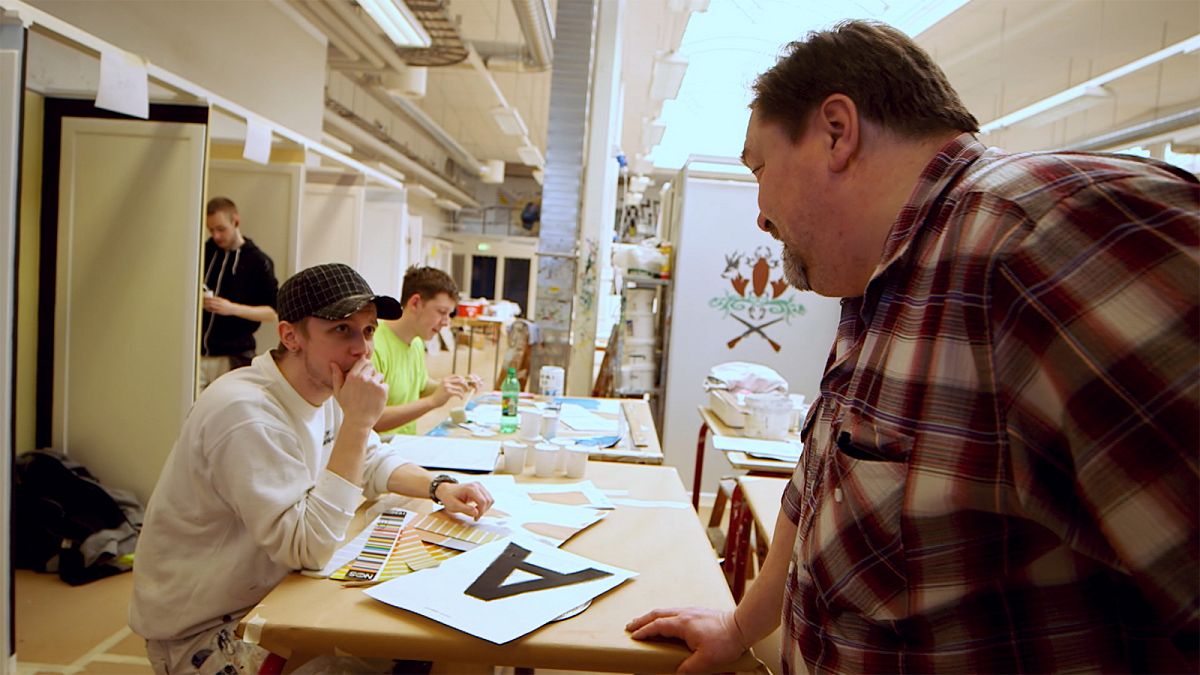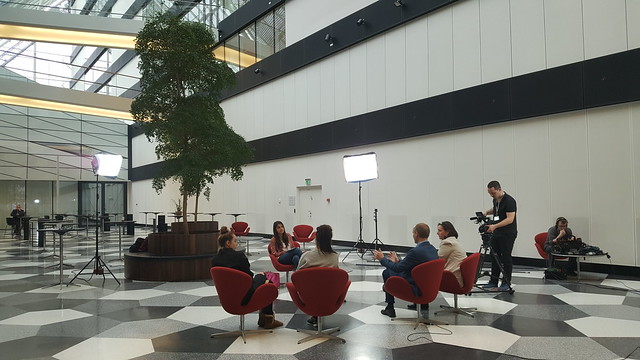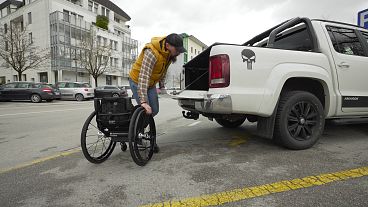WIth unemployment among young people a continuous problem across Europe, apprenticeships are becoming an increasingly important source of work and Denmark is leading the way.
Did you know there are almost 4 million apprentice students in Europe?
It's estimated between 60-70% get jobs immediately after their apprenticeships, because they have the crucial technical skills employers need. But with youth unemployment across Europe so high, it's become very important these apprenticeships are effective in preparing students for the workplace.
By combining education and work, Antony is preparing for a changing workplace. For his apprenticeship to be effective in getting him a job, it must meet 7 criteria.
Antony needs:
a written contract.
clear learning outcomes from his employer.
support for him and his trainers.
half of his training to happen in the workplace.
to be paid according to the law.
social protection.
a safe environment.
In order to achieve these criteria, Antony also needs the support of his country. Regulations are required to ensure all stakeholders are transparent and are both designing and implementing apprenticeships together.
In this way, it's important SMEs (small and medium-sized enterprises) receive assistance to create the appropriate positions.
At the end of Antony's apprenticeship, he should get:
- a qualification recognised both nationally and in the EU.
- receive career guidance and be told about apprenticeship options across Europe.
- reliable assessments to know he is learning for the future.
Denmark is one of 8 countries in Europe that meets two-thirds of these criteria. The other 20 lag behind.
Their teachers believe it's these apprenticeships that really shape the Danes.
Henrik Svensson is a teacher working for 'Technical Education Copenhagen'. He explains why the apprenticeship model works so well:
"They come in directly from the public schools and they don’t have so much identity! When they go out and take apprenticeships at these companies before coming back to school, they have a new identity!”
euronews invited a panel to discuss the issue of apprenticeships and to ask why Denmark's model is so effective and successful within its industries. The panel included:
Lone Folmer Berthelsen, Director of Vocational Education, Conferation of Danish Industry.
Claus Eskesen, Educational Policy Consultant, Fagligt Fælles Forbund.
euronews: What do you as businesses and unions do that’s so very different in Demark, from the rest of Europe and, indeed, the rest of the world?
Lone: We’re very used to it, through our continuous talk with each other, because we have a system where the trade unions and the employer organisations work together in making vocational training courses. We have about 3,200 right now that we design together and we have a whole system for that.
Claus: We are putting a lot of effort to let's say, motivating our members to do more education and more training throughout their work life. But we also build it into our apprenticeships, I think. We have a dual system, meaning that our apprentices are shifting between school and being in the business. So, they will see how things are developing throughout their education.
Also on the panel, two young people from Denmark currently undertaking some of the country's apprenticeships available. They were:
Kira Bjerrum, Visual Arts Apprentice.
Olivia Lauring Lundsgaard, Decorator Apprentice.
Kira: Hi, my name is Kira and I am 25 years old. For the last 3 and a half years, I have been studying as a sign maker. I am finished in 2 months here at the TEC in Copenhagen. As a sign maker, we are working with Visual Communication and signage. We design and follow the work in progress from the start product to the finished product. When I am finished with my education, my plan is to be a freelancer. I’ve been very lucky so I’m already in the process of opening my own company and getting my own clients.
Olivia: I’m Olivia. I'm 23 years old. I’ve been in apprenticeship training for around three months now. I decided to do an apprenticeship because I love to come out and work with my hands and put my energy into my work. You do so many different things, you work at so many different places over the years. I love to be a painter. I think it will give me a lifelong job.
euronews: How prepared do you girls think you are for the job market?
Kira: Many people have told me you're only making stickers. How can you take 3 and a half years? But it’s so much more than this! You have to learn everything. So through this 3 and a half year course, I think I am ready to stand on my own.
Olivia: I think, with a real job and this company I am into now, I will be prepared. It's really, really good.
euronews (to Claus and Lone): I wanted to get your opinion on an interview I did with Saadiya Zahidi, the head of Education, Gender & Work at The World Economic Forum. I wanted to play this out for you and get your take on what she is saying.
Zahidi (pre-recorded): Agility and the ability for lifelong learning is the thing that most employers, unions and the government should be thinking about and imparting to younger people. That needs to be built into the primary education system, into the secondary education system, into apprenticeships, into technical and vocational training. It needs to be built into universities.
Claus: We could easily have some kind of framework saying what the common goal is, the national goal for something. But when it comes to the content, it must be the social partners who put in, saying 'this is what's important right now and this is what is important in a 10-year perspective, 20-year perspective.'
Lone: We also make schedules for what they should learn in the workplace, when they are there and what they should learn when they're at their school. We can easily go to each other and say the technology development must now change, it must be more digital. We're able to continuously change the education.
euronews: Let me play out for all of you another thing that Saadiya brought up in our interview earlier. He's discussing the skills needed in work by 2020.
Zahidi (pre-recorded): We conducted at the WEF (World Economic Forum), the future job survey. Digital stem and technical skills are going to be very important but much more so, the skills that really rose up in the top 10 were things like critical thinking, collaboration creativity and active listening. Now these are all things that are incredibly human and that are transferable across multiple jobs.
euronews: Do you think your apprenticeships have prepared you for the kind of skill sets that Saadiya is talking about in the next two years?
Olivia: Yeah, I think the apprenticeship has taught me the skills to go out and make people happy with the paint work I do.
Kira: I’ve learnt to be independent and I’ve learnt to follow the project from the start and the whole way to the end.
euronews: There is a lot of criticism that many students get pushed into university education and they come out unprepared. How do you think vocational training really stands out?
Claus: I think the dual system helps us a lot. Nearly all of them are getting jobs right after they finish their education, so they are ready for the job market also because they were part of the job market through their education.
euronews: Trust seems to be critical when it comes to the relationship between all three stakeholders?
Claus: It’s very important with the trust between all three parties, especially about the future and the digitalisation, disruption and so on.
Lone: For the companies, it is very important when you make a contract for 3-4 years you become part of the firm. You aren’t just an apprentice, you are a colleague.
Claus: But we must be very focused on what they're learning, to have that agility and not be unemployed in 5 or 10 years.




